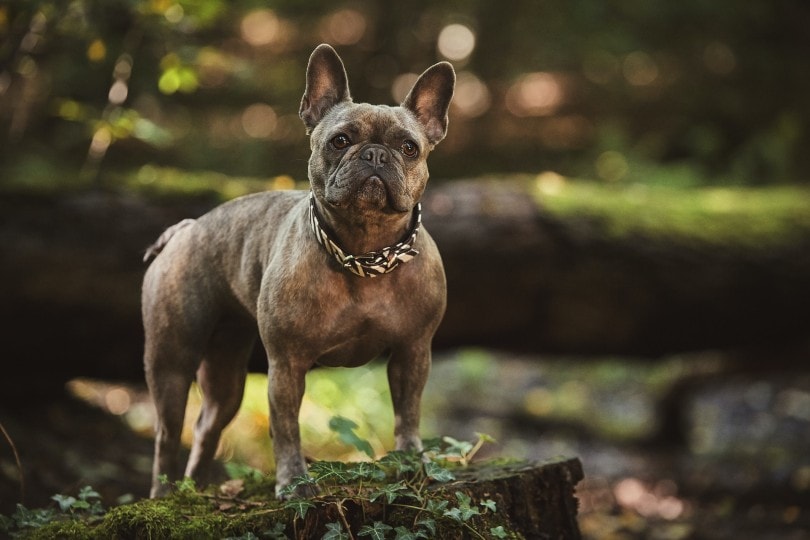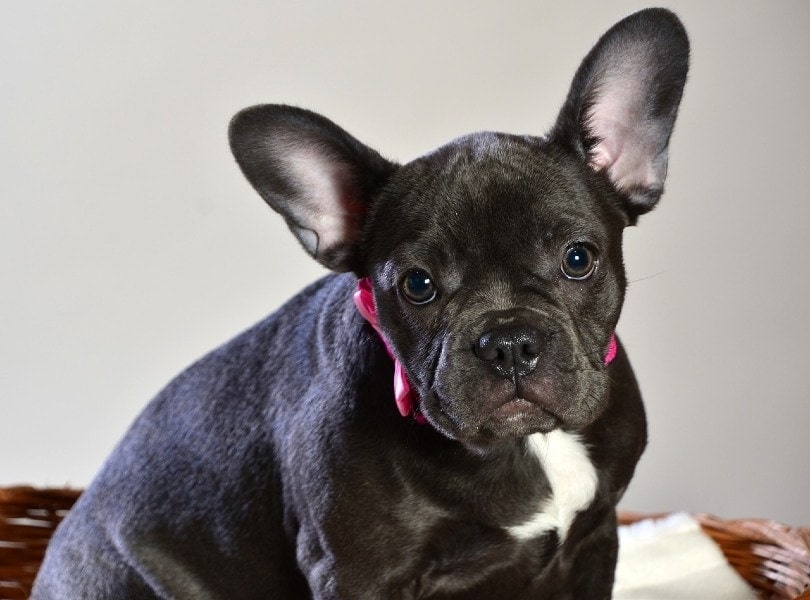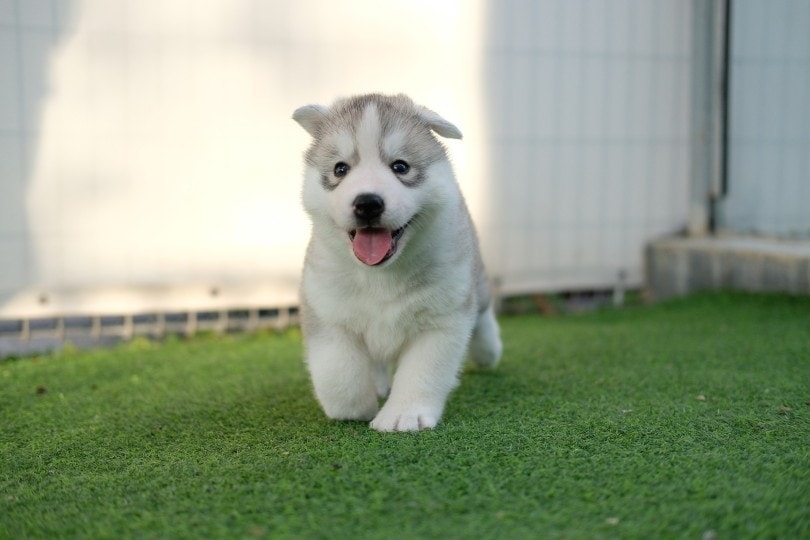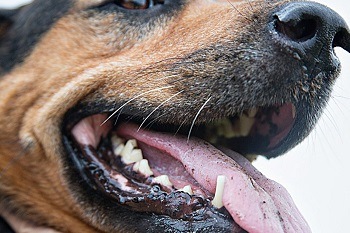French Bulldog Eye Problems — 6 Common Conditions in Frenchies
Updated on

The even-tempered and charming bat-eared Frenchie has grown in popularity over the years. They make perfect pets, especially for city dwellers, due to their small size and affectionate nature.
However, French Bulldogs do have their fair share of health conditions, which include eye problems. It’s an excellent idea to investigate the temperament and possible health issues of any breed. After all, you’ll be investing your money, time, and heart into your dog.
Here, we go over the eye problems that Frenchies are prone to and how these conditions are treated. This way, you’ll know what to look out for and can be better prepared.
The 6 Common Eye Problems in Frenchies:
1. Cherry Eye
Cherry eye is one of the most common eye problems that Frenchies are prone to. This condition is a prolapsed gland of the Frenchie’s third eyelid, which means the gland moves out of its usual location (prolapsed).
All dogs have a nictitating membrane, or third eyelid, which is found in the inner corner of their eye. It works to provide extra protection to the dog’s eye and cornea and spreads tears across the eye, which helps prevent dryness.
If your Frenchie has a swollen pink or red mass on the inside corner of their eye, they might have cherry eye. It’s treated through surgery, as well as pain medication after the surgery.
2. Conjunctivitis
Also known as pink eye, conjunctivitis is a common eye problem that can plague French Bulldogs. The tissue covering the eye is called the conjunctiva, which is a mucus membrane.
This condition also affects the nictitating membrane, or third eyelid. The conjunctiva becomes inflamed, and the eyes become itchy and turn bright pink.
This can occur from allergies or it can be bacterial or viral. When dogs have pink-eye, they will rub their faces and eyes on the floor and with their paws. The condition can be quite uncomfortable. There may also be a fair amount of discharge from their eyes.
If your vet determines that your pup has conjunctivitis, they will attempt to treat the underlying cause. If it’s from allergies, eye drops and sometimes oral medication will usually be prescribed, and then the allergy itself will be addressed.
Bacterial conjunctivitis is typically treated with antibiotics — usually topically.

3. Corneal Ulcer
Corneal ulcers are also called eye ulcers. It’s a condition when the cornea (the outer layer of the eye) wears away, which causes a kind of dent.
Sometimes the dent is shallow, but it can also run deeper, which will cause pain, discharge, and redness, and the dog blinks frequently or will keep the eye closed.
It can be caused by injury, a foreign object, or a viral or bacterial infection. Sometimes it is a secondary condition that results from another (such as Cushing’s, chronic dry eye, or hypothyroidism).
Depending on the severity and cause, corneal ulcers are treated through surgery or topical pain medication and antibiotics.
4. Dry Eye
Dry eye syndrome is also known as keratoconjunctivitis sicca (KCS). The tear gland doesn’t produce enough tears and will become inflamed. You’ll also notice yellow or green discharge and your Frenchie blinking and squinting.
It’s treated based on the underlying cause, but typical treatments are antibiotics, cyclosporine (which stimulates tear production), artificial tears (eye drops and lubricants), or surgery.

5. Entropion
When a dog’s eyelid turns toward the eye, they have entropion, which can affect the upper or lower eyelid or both. This is one of the most common eye problems that can affect dogs.
The common signs of entropion are excessive tearing of the eyes, discharge (pus or mucus), red eyes, and keeping the eyes closed.
It’s typically treated by surgery, but puppies will have eyelid-tacking done, which involves using sutures to pull the excess skin around the puppy’s eye outward, away from the eye.
6. Juvenile Cataracts
Juvenile cataracts can occur in puppies, and unfortunately, the French Bulldog is one of the breeds that are genetically predisposed to it.
The lens of the eye is behind the pupil, and the cataract causes milky cloudiness on the lens. It can lead to vision impairment.
Some cataracts progress quickly and others stay static. If you notice any discoloration in your puppy’s eyes or if they are pawing at their eyes and squinting, go straight to your vet.
Dense cataracts might need surgery, and the vet will also try to determine the cause, which might also need treatment.
What Should You Look Out For?

There are several signs and symptoms for each of these eye problems. Here’s a summary so you know what you should be looking out for:
- Frequent blinking
- Rubbing the eyes with paws or on the carpet
- Closing one or both eyes frequently
- Excessive drainage from one or both eyes
- Redness around the eyes (mucus membranes)
- Change in eye color
- Cloudy eyes
- Third eyelid is visible
These symptoms can all indicate an issue with your Frenchie’s eyes, so you should see your vet as soon as possible. Many of these eye conditions can lead to permanent damage and are painful, so it’s best to get them checked out sooner rather than later.
How You Can Help Your Frenchie’s Eyes
Since Frenchies are predisposed to eye problems, you can take a few steps to reduce the chances of these conditions from occurring.
First, when you give your French Bulldog a bath, try not to get soap in their eyes, as this could be quite irritating. Consider using puppy shampoo because these are made to be quite gentle and are perfectly safe for use on adult dogs.
Make a point of looking at your pup’s eyes regularly. You should be quite familiar with your Frenchie’s eyes, and this will make it easier for you to detect when something has changed, so you can catch it early. Try making this part of your grooming routine.
Finally, use eye wash pads or an eye wash meant for dogs when cleaning any eye discharge. This can help prevent infection.
Conclusion
Owning a French Bulldog means you’ll probably end up caring for an eye problem that they have at some point. This is quite common with this breed. But if you take care and preventative measures, you should be able to catch any issues before they become too serious.
See your vet regularly and pay attention to your Frenchie’s eyes, and you’ll have years to spend with your best friend.
Featured Image Credit: speckfechta, Unsplash














